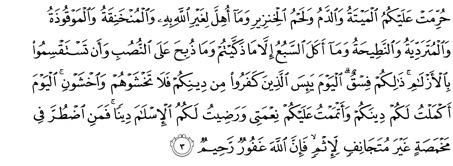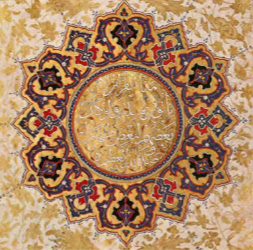A Literary Portrait of Qur’anic Origins
by Aaron W. Hughes*
I would like to consider Reza Aslan’s recent IQSA blog post in light of his best-selling book Zealot, because his blog post appears like his book to be essentially a creative literary piece. In a recent review of Zealot published in Critical Research in Religion (2.2 [2014]: 195-221), Richard Horsely, a leading scholar of Christian origins, argues that
the lack of critical analysis of sources and the periodic historical confusions in his narrative, however, suggest that Zealot is not a historical investigation. The biography at the end of the book explains that his formative training was in fiction and that his academic position is in the teaching of creative writing. His presentation of Jesus’ ‘life and times’ (a modern genre) appears to flow out of just this literary experience. (195)
This was by no means a singular charge. Many scholars, not to mention reviewers such as those in the New York Times, were very critical of his book.  Aslan leaves the intellectual heavy lifting to others and instead reproduces a host of assumptions that are reminiscent of a previous generation of New Testament scholars. He conflates gospel accounts, takes poetic license to embellish stories, and devotes most of his focus on Jesus the individual as opposed to the various social actors that made the many Jesus movements possible. He also assumes that the texts of the New Testament explain how “Christianity’’ broke away from “Judaism,” when many scholars of this period (from Neusner to Boyarin to Horsely himself) have shown, with evidence, that such a separation is much more complicated and much later than this.
Aslan leaves the intellectual heavy lifting to others and instead reproduces a host of assumptions that are reminiscent of a previous generation of New Testament scholars. He conflates gospel accounts, takes poetic license to embellish stories, and devotes most of his focus on Jesus the individual as opposed to the various social actors that made the many Jesus movements possible. He also assumes that the texts of the New Testament explain how “Christianity’’ broke away from “Judaism,” when many scholars of this period (from Neusner to Boyarin to Horsely himself) have shown, with evidence, that such a separation is much more complicated and much later than this.
Aslan imports this basic methodology into his blog post with the aim of offering us insights into the “Qur’anic Clues to the Identity of Muhammad’s Community in Mecca.” In it he makes the rather unremarkable point that “there is no reason to believe that this term was used to designate a distinct religious movement until many years into the Medinan period or perhaps after Muhammad’s death.” Indeed, why stop there? Why not go further and say that the term may not designate a “distinct religious movement” until the eighth, ninth, or even tenth century? Instead of Muslims, Aslan encourages us to consider using the term that the Qur’an uses, ummah. The Constitution of Medina, not to mention the Qur’an, is simply and unproblematically assumed to date to the time of Muhammad.
Aslan then projects our modern understandings of such terms as “ethnicity,” “religion,” “experience,” and “ethics” onto the seventh century. He never entertains, for example, what the term “Jew” might have signified in the seventh century, especially in Arabia following the codification of the Babylonian Talmud roughly a century earlier. Instead, he assumes that what is meant by “Jew” then is the same as now. He brings in Newby’s irenic reading of the situation—that the Jews would have nothing to object to Muhammad’s prophecy. It could be argued, if we assume as Aslan does, that Jews then were like Jews now, that they would have objected to everything from Muhammad’s still inchoate message to the charge that their scripture had been tampered with. Why not assume, for example, that Muhammad, at least initially, thought he was a “Jew”?
Aslan then speaks of “Arabian Jewish mysticism,” as if that term actually denotes something real in the world. What sources does he have for this pre-kabbalistic mysticism? What were its contours? He then speaks of “theological differences between Islam and the other People of the Book” at the time of Muhammad as if Islam had somehow fallen to the earth theologically complete, as opposed to examining the historical controversies that made theology possible only much later. If “Muslim” only took on its religio-semantic valences much later, then surely the same could be said for “Islam.”
As with Zealot, Aslan concludes his blog post on a very modern note: “The point is that although Muhammad recognized the irreconcilable differences that existed among the People of the Book, he never called for a partitioning of the faiths.” Instead, this partitioning was the product of later jurists. If we want to get to the authentic message, Aslan concludes, then we need to “understand Muhammad’s actual beliefs regarding the Jews and Christians of his time.”
This confusion of myth and history, the conflation of fact and fiction, is dangerous for the historical study of Qur’anic origins. Aslan’s goal is not historical scholarship, but to produce a literary portrait designed to make us feel good about ourselves—and about Islam in the league of religions. But what happens when a modern virtue gets in the way of history? Unfortunately, as irenic terms like “convivencia,” “multicultural,” “symbiosis,” “Abrahamic,” and “tolerant” increasingly litter our intellectual landscape, it is history that ultimately gives way. As the late Chief Rabbi of Israel once said about The Bible Code (1997), “If you have to lie to people to get them to believe, what’s the point?”
* Aaron W. Hughes is Philip S. Bernstein Chair of Jewish Studies in the Department of Religion and Classics at the University of Rochester.
© International Qur’anic Studies Association, 2015. All rights reserved.


